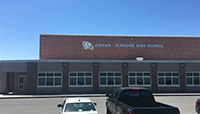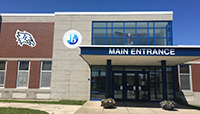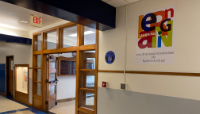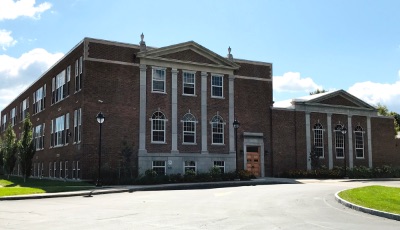International Baccalaureate Service
Service Guide
Service as Action
At the core of the IB philosophy is the belief that students can make the world a better and more peaceful place. Service is one way to make that belief a reality. At JEMS, all students participate in service in each year of the programme. Students conduct service when they commit to making positive differences in a local or global community through action.Service learning happens when you connect classroom content, skills, and literature to a community need. Service allows you to apply what you learn in class to improving the world around you.
There are four main types of service a student could choose.
| Direct Service | Students engage directly with other people, living things, or environments to make positive change in a community | -volunteer -tutor -learn with others -host a benefit dinner -show kindness to community |
| Indirect Service | Students serve others in some way, though they don't interact with people face-to-face | -plan a fundraiser -clean the environment -organize a collection |
| Advocacy | Students educate others to raise awareness and inspire action relative to a community need | -give a speech -support a cause -create a newsletter to promote literacy -hold a community information night |
| Research | Students gather, analyze and report data about a community need in hopes of influencing policy or practice | -research town history -write a guide -create brochures or videos -study environmental samples |
Through your participation in service as action, you’ll be able to:
- discover your strengths and areas for growth
- take on challenges to develop new skills
- discuss, evaluate, and plan activities led by you
- persevere in action
- collaborate with others
- develop an international mind by engaging with other languages and cultures
- consider the positive and negative impacts of your actions on others
All students are required to engage in service in each year of the programme. The service you conduct can be (1) part of a lesson or unit your teacher is providing, (2) an activity your whole class or grade level participates in together, or (3) an activity you engage in and plan independently.
Service requirements by year
| Year I | At least one teacher-led service project One school-wide service activity Satisfy 2 of the 7 learning outcomes of service |
| Year II | At least one teacher-led service project One school-wide service activity Satisfy 2 of the 7 learning outcomes of service |
| Year III | One long-term, student-initiated service project One school-wide service activity Satisfy 3 of the 7 learning outcomes of service |
The rubric further explains what is required in each year of the programme.
| Emerging (Year I) | Demonstrating (Year II) | Sophisticated (Year III) |
| With guidance, students are beginning to understand and reflect on the needs of communities and the values of being actively involved in making community change. With guidance, students are emerging in collaborative and communicative skills related to working with others. Students are beginning to develop learner profile traits through service. | With some guidance, students are responding to and reflecting on the needs of communities and are beginning to show an awareness of how service impacts themselves and others. Students are demonstrating a willingness to collaborate with others and are developing a sense of independent leadership through the learner profile traits. | Independently and with some guidance, students are engaged with global communities through action, response, and reflection. Students show a greater awareness of how service has changed themselves and others. Students show a sophisticated ability to collaborate, communicate and reflect through service. Students become familiar with the learner profile traits through conducting service. |
| At least one teacher-led service project with reflection | At least one teacher-led service project with reflection | One long-term, student-initiated service project with process journal (can be the community project) |
| One school-wide service activity | One school-wide service activity | One school-wide service activity |
| Satisfy 2 of the 7 learning outcomes of service | Satisfy 2 of the 7 learning outcomes of service | Satisfy 3 of the 7 learning outcomes of service |




